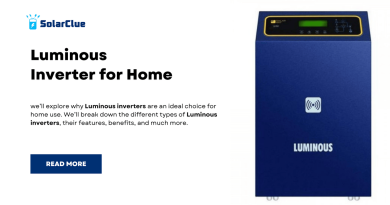Does Homeowners Insurance Cover Solar Panels
Solar energy systems have become a popular renewable energy option for homeowners, offering the potential for reduced electricity bills and a smaller carbon footprint. However, the addition of solar panels to a home also introduces new considerations for insurance coverage. This blog post explores whether homeowners insurance covers solar panels, the extent of that coverage, and tips for ensuring your solar investment is fully protected.
Table of Contents
- 1 Typical Coverage Provided by Homeowners Insurance Policies
- 1.0.1 Factors Affecting Solar Panel Coverage
- 1.0.2 Common Exclusions in Homeowners Insurance Policies
- 1.0.3 The Importance of Reviewing Your Policy for Solar Panel Coverage
- 1.0.4 Additional Insurance Options for Solar Panels
- 1.0.5 Tips for Ensuring Adequate Coverage for Your Solar Panel System
- 1.0.6 Case Studies of Homeowners Insurance Claims Involving Solar Panels
- 1.0.7 The Future of Homeowners Insurance and Solar Panel Coverage
- 1.1 FAQ
Typical Coverage Provided by Homeowners Insurance Policies
Most standard homeowners insurance policies cover solar panels as part of the dwelling coverage because they are considered permanent attachments to the home (like a garage or a deck). This means that if your home is damaged by a covered peril, such as fire or hail, the insurance policy typically extends to your solar panel system.
However, the coverage can vary significantly between policies and insurers, so it’s crucial to verify the specifics with your insurance provider.
Factors Affecting Solar Panel Coverage
- Location of the Panels: Roof-mounted solar panels are generally covered under the dwelling portion of a homeowners policy, just like the rest of your house. In contrast, ground-mounted solar panels might be considered other structures or personal property, which can affect the type of coverage and the amount of coverage available.
- Specific Perils Covered: Coverage depends on whether your policy is an “all-risk” (covering all perils unless specifically excluded) or a “named-peril” policy (covering only those perils that are listed in the policy). Common perils that might affect solar panels include wind, hail, fire, and vandalism.
Common Exclusions in Homeowners Insurance Policies
While solar panels are typically covered under homeowners insurance, there are exclusions to be aware of:
- Neglect: Damage due to lack of maintenance might be excluded.
- Wear and Tear: Standard policies do not cover gradual damage.
- Earth Movement: Some policies exclude damage from earthquakes or landslides, which might be relevant if your solar panels are ground-mounted.
The Importance of Reviewing Your Policy for Solar Panel Coverage
It’s essential to thoroughly review your existing homeowners insurance policy to understand what is and isn’t covered. Look for any specific mentions of solar panels or renewable energy equipment and check for any applicable limits or exclusions.
Additional Insurance Options for Solar Panels
If your current homeowners policy doesn’t offer adequate coverage for solar panels, consider the following options:
- Endorsements: You can often add an endorsement to your existing policy to provide additional coverage for solar panels.
- Separate Solar Panel Insurance: Some insurers offer specialized solar panel insurance policies that provide comprehensive coverage beyond what a standard homeowners policy might offer.
Tips for Ensuring Adequate Coverage for Your Solar Panel System
- Communicate with Your Insurer: Inform your insurer before installing solar panels to understand how they will affect your coverage.
- Increase Coverage if Necessary: You may need to increase your coverage limits based on the value of your solar panel system.
- Document Everything: Keep detailed records of your solar panel installation and all associated costs.
- Regular Maintenance: Perform regular maintenance and keep records to help in case of an insurance claim.
Case Studies of Homeowners Insurance Claims Involving Solar Panels
- Case Study 1: A homeowner in Arizona received coverage for hail-damaged roof-mounted solar panels under their dwelling coverage, subject to their policy’s deductible.
- Case Study 2: In California, a homeowner had to purchase an additional endorsement to cover ground-mounted solar panels after they were damaged by a windstorm.
The Future of Homeowners Insurance and Solar Panel Coverage
As solar panel installations become more common, insurance providers are adapting their policies to meet changing needs. It’s likely that we’ll see more tailored insurance products and clearer guidelines regarding solar panels in the future.
FAQ
1: Does homeowners insurance automatically cover solar panels?
A: Yes, most standard policies cover solar panels as part of the dwelling, but it’s important to confirm with your insurer.
2: What should I do if my homeowners policy does not adequately cover my solar panels?
A: Consider adding an endorsement or looking into a separate solar panel insurance policy.
3: Are ground-mounted solar panels covered differently than roof-mounted panels?
A: Yes, they often are. Ground-mounted panels may need separate coverage as they could be classified under “other structures.”
Ensuring that your solar panels are adequately covered by your homeowners insurance is crucial for protecting your investment. Always consult with your insurance provider to tailor your policy to meet your specific needs.
Here’s a table summarizing the key aspects of homeowners insurance coverage for solar panels:
| Coverage Aspect | Details |
|---|---|
| Typical Coverage | Solar panels are generally covered under dwelling coverage as they are attached to the home. |
| Factors Influencing Coverage | – Location: Roof-mounted vs. ground-mounted – Perils Covered: Depends on whether the policy is all-risk or named-peril. |
| Common Exclusions | – Neglect and lack of maintenance – Wear and Tear – Earth movement (e.g., earthquakes) |
| Reviewing Policy | Essential to review specific mentions of solar panels or related equipment in your policy to understand coverage limits and exclusions. |
| Additional Insurance Options | – Endorsements to existing policy – Separate solar panel insurance policies |
| Tips for Adequate Coverage | – Communicate with your insurer about the installation – Possibly increase coverage limits – Keep detailed installation and maintenance records |
| Case Studies | – Arizona: Coverage for hail damage under dwelling coverage – California: Additional endorsement required for ground-mounted panels damaged by windstorm |


